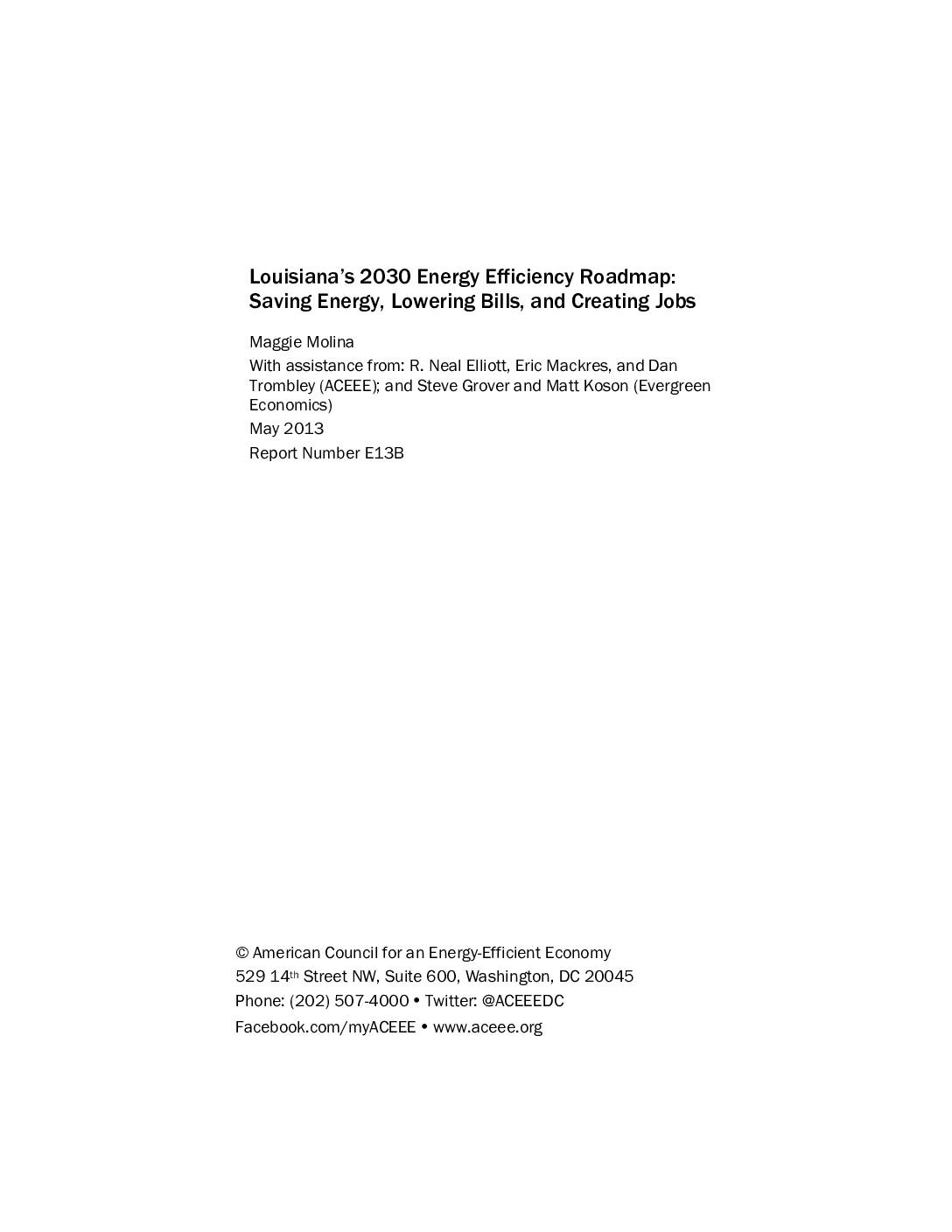This study finds that energy efficiency potential is largely untapped in Louisiana, and that a set of policies and programs can cost-effectively meet 5% cumulative of statewide electricity needs by 2020, increasing to 16% cumulative by 2030; and 3% cumulative of natural gas needs by 2020, increasing to 12% cumulative by 2030. CHP systems hold additional potential of about 1,500 MW of capacity by 2030. The set of recommended efficiency policies and programs in this report can reduce Louisiana’s energy costs by a net $4.2 billion over the life of the energy-saving measures. The macroeconomic assessment finds that in 2030, greater energy efficiency will result annually in about $3 billion in net economic output, including $1 billion in wages, $663 million in business income to small business owners, 27,100 person-years of employment, and increased state and local tax revenue by $114 million.
Despite this significant potential, the state has yet to embrace energy efficiency due to pervasive market barriers. Customers and businesses often face high upfront costs and lack information or expertise, tenants and building owners encounter differing incentives, and utilities’ business interests are fundamentally misaligned with the goals of energy efficiency. The policies and programs outlined in this report will help chart a path for Louisiana to take greater advantage of energy efficiency as a means to grow the economy.
This report was prepared simultaneously with a companion report for the city of New Orleans, New Orleans’ Efficient Path to 2030: Leadership to Save Energy, Lower Bills, and Create Jobs.
Share this

Sectors: Buildings, Cross cutting, Industry, Power sector, Renewables
Country / Region: Northern America, United States
Tags: cogeneration, corporate reporting, economic cost, electricity generation, energy, energy efficiency, energy efficiency roadmaps, energy savings, jobs, natural gas, roadmapsKnowledge Object: Publication / Report
Published by: ACEEE
Publishing year: 2013
Author: Maggie Molina, R. Neal Elliott, Eric Mackres, Dan Trombley, Steve Grover, Matt Koson (Evergreen Economics)
